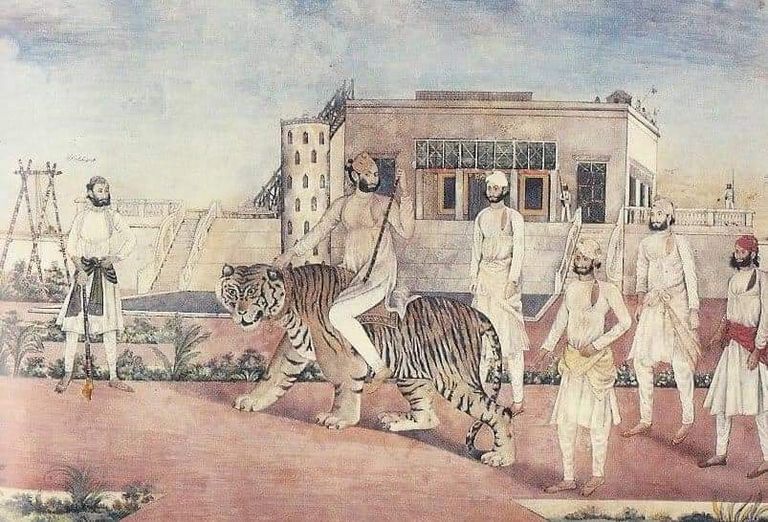
All arrested thirty seven princes of the Last Mughal were mercilessly killed. Now horrors were about to descend on the Nobles of Delhi. British moved to punish the princes’ associates as well as the Nawabs. The most popular of them was Nawab of Jhajjar (Jhajjar is a place in Rajisthan). During the mutiny the British asked the Nawab of Jhajjar to support company with money, resources and men. However, he courageously decided to support Bahadur Shah Zafar. Thus, he was tried in court by the British; he listened his sentence bravely and took his death fearlessly without any pleading or asking for any mercy from the British.
In this picture you can see Nawab of Jhajjar Abdul Rahman Khan riding his pet Tiger.
Below is a short account of his arrest and fate, mentioned in “The Last Mughal” by William Dalrymple.
“Theo Metcalfe went personally to arrest the Nawab of Jhajjar, who had refused him shelter on the first week of the uprising. Ommaney was particularly impressed by the Jhajjar Nawab’s bearing and bravery, describing him as ‘a fine looking man, stout and rather handsome’. He was also moved when news came through of his death sentence: ‘the two young sons of the Jhujjar Nawab on seeing their father, the little fellows cried very much, a striking and still a painful scene…I felt pity for the Nawab; he was a fine looking man and bore his sentence and death very well. His servants made low salaams when he left for execution’.
Ommaney was not alone in being moved by the hanging of all these noblemen. Another witness, Mrs Muter, was particularly impressed by the ‘startling justice’ and logic of the Jhajjar Nawab’s defence in court, arguing that ‘it was England who had armed and trained the ruffians who had brought the calamity on the land; and it was not to expect him to compel that obedience in his followers which the rulers of the country and his judges had failed in compelling among their own’
Hi @alphaq!